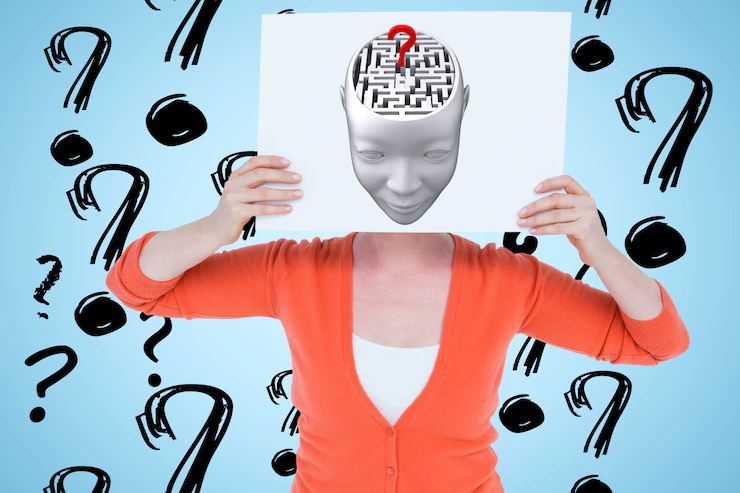Dissociative amnesia is a dissociative disorder characterized by significant memory loss that is typically triggered by a traumatic or stressful event. It is a psychological defense mechanism in which the mind blocks out or compartmentalizes memories as a way to cope with overwhelming emotions or experiences. Recognizing the signs of dissociative amnesia is crucial for early intervention and seeking appropriate treatment. In this article, we will explore the signs of dissociative amnesia and emphasize the importance of seeking professional help.
- Sudden Memory Loss
The primary and most evident sign of dissociative amnesia is sudden and extensive memory loss. Individuals with this condition may have difficulty recalling significant periods of their lives, specific events, or even their own identities. The memory loss is usually related to a traumatic or stressful event, and the affected individual may have no recollection of the event itself or the time leading up to it. The memory loss is not due to physical injury or medical conditions but is a result of psychological factors.
- Gaps in Memory or Confusion
People with dissociative amnesia often experience significant gaps in their memory. They may find themselves unable to recall important personal information, such as their address, phone number, or details about their relationships. They may also have difficulty remembering recent events or conversations. Additionally, individuals with dissociative amnesia may feel confused or disoriented about their past or present, as they struggle to piece together their fragmented memories.
- Distress and Emotional Turmoil
Dissociative amnesia can cause significant distress and emotional turmoil. The memory loss and gaps in personal history can lead to feelings of confusion, anxiety, and a loss of identity. Individuals may experience a sense of detachment from themselves or their surroundings. The distress can be further exacerbated by the frustration of not being able to remember important details or events. Emotional instability and mood swings are common in individuals with dissociative amnesia.
- Triggers and Flashbacks
Certain triggers, such as specific sights, sounds, smells, or situations, can bring about flashbacks or brief glimpses of forgotten memories. These flashbacks may be fleeting and fragmentary, but they can be emotionally intense and overwhelming. Triggers associated with the traumatic event or period may elicit a range of emotions, including fear, sadness, or panic. The sudden appearance of these flashbacks can be distressing and may further contribute to the individual’s desire to avoid remembering the traumatic event.
- Impaired Functioning in Daily Life
Dissociative amnesia can have a significant impact on an individual’s daily functioning. Memory loss and confusion can interfere with their ability to perform daily tasks, maintain relationships, or pursue work or education. The gaps in memory may lead to difficulties in planning, problem-solving, and decision-making. Individuals may also struggle with a diminished sense of self and identity, making it challenging to establish and maintain meaningful connections with others.
Seeking Treatment for Dissociative Amnesia
If you or someone you know is exhibiting signs of dissociative amnesia, it is crucial to seek professional help. Here are some important steps to take:
- Consult a Mental Health Professional: A qualified mental health professional, such as a psychologist or psychiatrist, can conduct a thorough evaluation to assess the symptoms and provide an accurate diagnosis. They will develop a personalized treatment plan based on the individual’s needs.
- Psychotherapy: Psychotherapy, particularly trauma-focused therapy, is a key component of treatment for dissociative amnesia. Therapists can help individuals process and integrate traumatic memories, develop coping mechanisms, and address any underlying emotional issues contributing to the amnesia.
- Medication: In some cases, medication may be prescribed to manage associated symptoms such as anxiety or depression. However, medication alone is not sufficient to address dissociative amnesia and should be used as part of a comprehensive treatment plan.
- Supportive Resources: Engaging in support groups or connecting with others who have experienced similar struggles can provide a sense of validation, understanding, and encouragement. Support groups offer a platform to share experiences and learn from others who are on a similar journey of recovery.
Recognizing the signs of dissociative amnesia is essential for early intervention and seeking appropriate treatment. If you or someone you know is experiencing sudden memory loss, gaps in memory, emotional distress, or impaired functioning, it is important to consult a mental health professional. With the right support, therapy, and resources, individuals with dissociative amnesia can embark on a journey of healing, integration, and recovery. Remember, seeking help is the first step towards reclaiming one’s sense of self and regaining control over one’s life.










